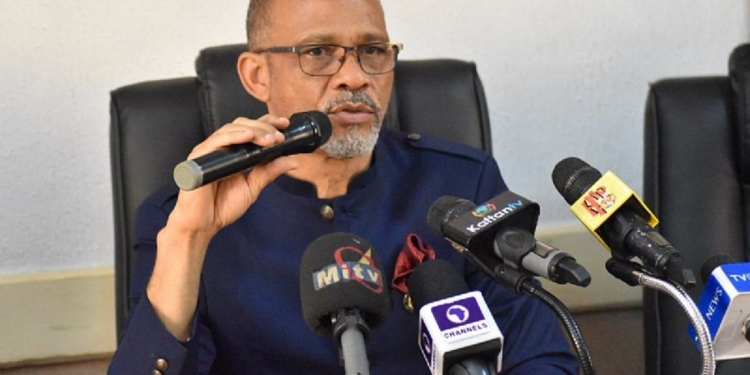Lagos commissioner of health, Akin Abayomi on Wednesday disclosed that there might be another lockdown if there is a surge on COVID-19 cases.
This was contained in a statement released by Tunbosun Ogunbanwo, the director of public health affairs of the ministry of health issued on behalf of the health commissioner.
Abayomi said many countries around the world have found it necessary to impose a second lockdown “which have significant socio-economic and security consequences”.
“A resurgence of cases in Lagos may lead to the reversal of the strategically calculated measures put in place by the Government to open up the economy.
“The first wave of coronavirus started in December 2019 and swept through an unprepared world. The first case of COVID-19 in Nigeria was recorded in Lagos on the 27th of February 2020. Lagos has since become the epicentre of the outbreak in Nigeria with a record of 21,107 confirmed cases and 212 deaths from the virus till date.
“The containment measures put in place at the time included COVID-19 testing, isolation and treatment, surveillance, total shutdown of the State for about 12 weeks and partial shutdown of social, economic and academic activities for over four months.”
He appealed to residents to observe safety protocols and be hygiene conscious.
“The Lagos State Government has once again stressed the need for residents to strictly adhere to precautionary measures against COVID-19 infection transmission to prevent a recurrence of the situation that led to the lockdown of the economy,” the statement read.
“A resurgence of cases in Lagos may lead to the reversal of the strategically calculated measures put in place by the Government to open up the economy.
“The first wave of coronavirus started in December 2019 and swept through an unprepared world. The first case of COVID-19 in Nigeria was recorded in Lagos on the 27th of February 2020. Lagos has since become the epicentre of the outbreak in Nigeria with a record of 21,107 confirmed cases and 212 deaths from the virus till date.
“The containment measures put in place at the time included COVID-19 testing, isolation and treatment, surveillance, total shutdown of the State for about 12 weeks and partial shutdown of social, economic and academic activities for over four months.”
Abayomi advised citizens against unnecessary movement and social gatherings, saying travelling into and outside the country should be discouraged except when absolutely necessary.
“The erroneous belief that COVID-19 has been conquered and is no more in Nigeria should be discarded. Based on our data, this assumption is invalid,” he said.
“It creates a false sense of security amongst the citizens causing many to abandon the use of face masks and other safety measures and protocols put in place by the Government.
“Though we have reached our peak as predicted and are now experiencing a decline in the number of positive cases, this is not a reason to conclude that all is over. COVID-19 is still very much with us as evidenced in the number of cases being recorded in the community daily and occasional deaths from severe complications.”
He said the reasons for a decline in COVID-19 cases in the state is attributable to a number of factors, including public adherence to safety regulations of physical and social distancing, hand hygiene, use of face mask in public places, expanded testing strategy and contact tracing, among others




Discussion about this post